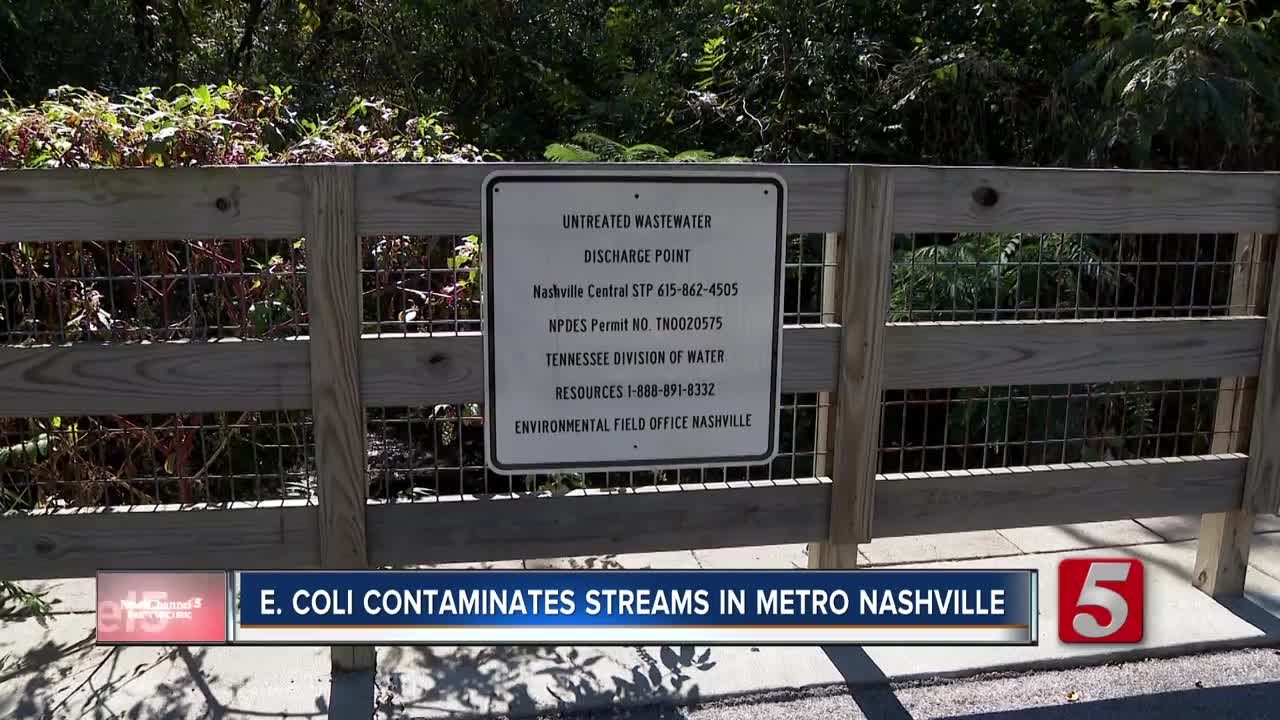NASHVILLE, Tenn. (WTVF) — Some Nashville streams and creeks are contaminated with E. Coli caused by overflow of wastewater from the sewer system.
According to Tennessee Department of Environment and Conservation, the flow of untreated sewer water can cause bacteria to flourish in area tributaries that flow into the Cumberland River. These creeks and streams have impaired water quality, and signs are posted near where the system dumps into the creek.
"In some of these areas we do know that we have some sewer systems that need attention, need repair or need rehabilitation," said Sonia Allman, spokesperson for Metro Water.
The city has been making sewer infrastructure improvements since 2009, when the federal government and EPA directed the city to make $1.5 billion in upgrades.
Nashville's sewer system was finished in 1958. Allman said the aging infrastructure is a challenge for city engineers who are trying to stop the flow of contaminants into the waterways.
She said the city is trying to increase public awareness.
"Clearly, I would hope no one would swim in a creek with an active overflow point," said Allman. "I think that's why we do post our signs to let people know that there is a known point where we've had overflows or would perhaps cause an overflow."
The overflows, and smell along Mill Creek, is part of the reason why Steve McMillan wants to leave his long time home in the neighborhood.
"Why would I live here when I can smell it from my house. Nashville is not what it used to be," said McMillan.
His home is directly across the creek from an overflow point located in Whitsett Park. It's downstream from an kayak or canoe inlet.
McMillan said he's worried by a large crack in the concrete structure that encases the manhole.
"You can see the gap where it's raised up. Then you got a big hole right here where it just pours out," he said.
McMillan took video of the manhole as it spewed water during a overflow in March of 2018. Others who live near the creek said they've been warned by neighbors not to interact with it.
"There's some fish that we see jumping sometimes. I caught one one time with a fly rod and I soon as I picked it up in my hand, it was done for," said Josh Becnel.
Allman disputes the state's concerns about E. Coli. caused by sewer overflow on the creek.
She said even though E. Coli. has been found on the creek, it's likely caused by animal waste rather than sewage overflows.
"We talk a lot about picking up after your pets and proper disposal of waste. All of that, that hits our ground or hits the roadways when it rains is washed into our creeks and streams," she said. Allman also said it may be waste from agriculture upstream in other counties.




